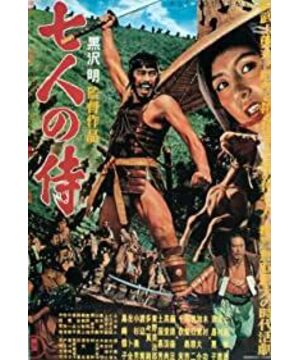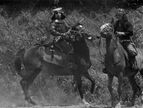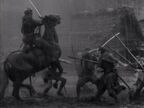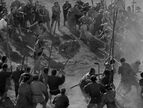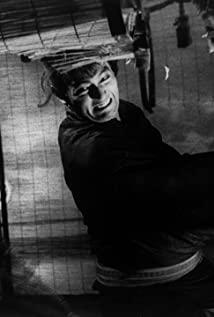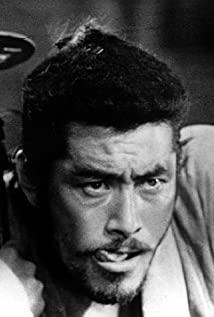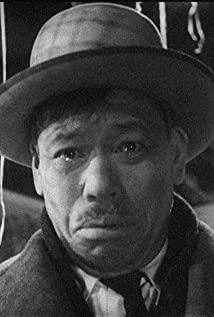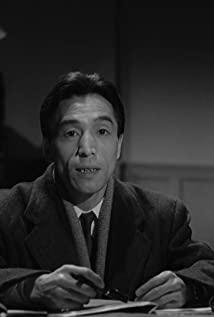For most ordinary people like me who just want to live and work at home, this sentence is arrogant and unreasonable, but for the Japanese samurai in the Warring States period, this kind of persistence is a spiritual discipline that must be faced every day and an unavoidable foundation for standing. : Persevere or give up, poor or rich, cut abdomen or surviving?
In the lens, there are dilapidated cities, deserted villages, naives with veggies, old people with dead wood in their hearts, unquenchable smoke of gunpowder, swarms of bandits, and muddy bumpy roads, coming and going with silent and proud swordsmen, The glorious face of the past was haggard, hungry and vain. It was an era when no samurai was needed. People only saw the sword, but not the one behind the sword. So some people cling to the city lord and gain fame in the repeated competition and endless killing. Some people have high self-esteem and proudly protect their swords. Listen No shengge, no groaning. Some have become bandits, some have been displaced.
It was in such desolation and desolation that the seven samurai of Akira Kurosawa came.
Fifty years ago, the "Seven Samurai" has long been regarded as a classic by generations of masters, no matter the theme, characters, photography, story, or martial arts, scenes, all show the grandeur of the master. The appearance of the seven samurai alone is wonderful, and the mystery is hidden deep, allowing people to see a few true samurai with distinctive personalities, and vaguely hear the sighs of Akira Kurosawa's respect and regret.
Kanbingbei represents Kurosawa Akira's samurai ideals. He is highly skilled, resourceful, humble and stable. When farmers ask him to protect the village, he could have made a more rational choice, but he agreed because he "will not spoil this." Bowl of rice". For a person who has long been tired of war and knows that this battle is not only futile but also fatal, his calm and calmness, if used in an old saying, is "the great man".
Like Kanbei, Shichiroji responded with a smile. The warrior who has experienced all kinds of battles immediately crossed the sword to break through life and death. He was willing to be a hawker and walked the streets and lanes with a smile. He not only meant loyalty, but also had a normal heart that was closer to the earth.
Gorobei saw through Kanbei's temptation at a glance, but his wisdom and experience do not mean that it is so sophisticated: "The reason I accept is mainly because your personality attracts me. Perhaps the deepest friendship in life is often due to chance. Let’s rise by chance." What a nostalgic time, willing to go to death for a first-time friend!
Seeing Heihachi for the first time, he seemed to be a contradictory person. He can frankly admit that the reason why he was able to save his life on the battlefield was because he often slipped first when facing a strong enemy. When Goro Beibe asked him if he was interested in killing 30 bandits , But he immediately lifted the knife and headed happily.
Kuzo represents the highest realm of martial arts. He is the kind of swordsman we know in the legend that seeks the way with the body and combines the heart and the sword. He is also like the legendary Ximen Fuxue with a cold heart, a thousand gold and a promise, ten steps per person. .
Katsushiro is the future of the samurai, and the future of Akira Kurosawa. Although he is only half a samurai in the eyes of others, his persistence, enthusiasm, and fresh vitality are always gratifying. After this battle, the samurai's The spirit will not stop.
Kiku Chiyo is the most special one. From his careless appearance, to the glaring King Kong, other warriors and villagers may not regard him as a real samurai. Indeed, his identity was originally worthwhile. Suspect, but Kurosawa was obviously borrowing from him to say an ancient dragon-style aphorism: What is a chivalry? It's the heart, not the sword!
Kurosawa did not deliberately beautify these samurai, they also hesitated to calculate. They agreed to the villagers’ request, not so much for a few meals, but more for sympathy, because of the samurai’s proud sense of responsibility. They go to protect the villagers, but the attitude is still superior, disdainful, and hierarchical in their consciousness, they will not admit that the mission of the samurai is for those "untouchables."
Perhaps the villagers are indeed disgusting, stingy, hypocritical, selfish, and snobbish. Kikuchiyo has made them understand the nature of farmers, and at the same time they have torn apart the belief that they are proud of themselves. The farmers’ sense of survival and behavior that they look down on is right. It is bestowed by warriors who only know how to fight for fame and gain, and fight and kill. In the end, the warriors are just like ordinary people, saving people from danger. To what extent is it purely chivalrous? Even though he was rich and wealthy, and he returned to his hometown, he still couldn't escape the fateful ending of five steps splashed with blood, a few piles of barren tombs, and no one weeping. Therefore, at the end of the battle, facing a few new graves with swords, Kanbingbei will say: "We have failed again. Those peasants are the winners. The samurai is like the wind, sweeping across the ground, and the peasants are always in harmony. The earth is together and live forever." The
samurai fight to the death, but the end of the story even subverts their creed of standing and standing. Kurosawa Akira's knife is really cruel enough, and it is this cruelty that shows us humanity. The truth and the harshness of history, this movie is not only remembered as an excellent martial arts film.
There is a special clip in the movie, the tension of the plot suddenly eased, the crowd sat in the nightclub, Kanbingbei said to Katsushiro: "I have been as young as you, tempered myself, fight the battlefield, and build rich achievements. Weiye will become the lord of the city in the future. But unknowingly, his hair has turned gray, and the time flies, parents and friends have died one by one..." At that moment, the tragic and helpless fate of the samurai will come under the cover of night and let People are shocked.
In the battle with bandits, farmers, and myself, the door of destiny was opened bit by bit. The wrestling of human nature and the emotion of life. For the thick and vast land and the history of hard work, life is so persistent and persevering. In that way, all creatures and creatures on the earth are blowing in the spring breeze again, and even the farmers are nothing. We will not lose respect for life because of this. On the contrary, we will be more solemn to the desperate warriors and selfish farmers.
This is where Kurosawa is extraordinary. His life sigh is different from the fate of Mizoguchi Kenji's fate, but is endless like a green grass. If you don't criticize Kurosawa from a nationalist perspective, you will see that what he expresses is a view of life that transcends the boundaries of culture, country and race, tragic and fierce, open-minded and calm, humanity's glory and despicability, confusion and dreams. In this way, we can understand that he will have a childlike "Curl the Sunset" in his later years, and the mother-in-law in the "August Rhapsody" who is holding a broken umbrella and marching through the storm. She is actually Akira Kurosawa herself. , Carrying a banner that hunts and faces the wind, even though it may be a broken umbrella, it may be facing a huge windmill array.
So, I understand that at the end of the movie, as at the beginning, the remaining three samurai are destined to walk on the road forever. They can only be ronin, being ordinary barefoot heroes, a little proud, a little confused, lonely, and bored. Like the grass on the ground, it spreads inwardly.
View more about Seven Samurai reviews


